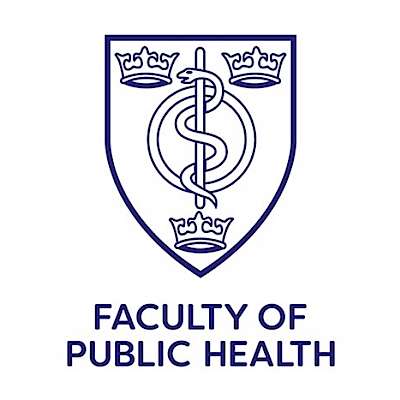The Faculty of Public Health have joined over 50 organisations that make up the Eating Better Alliance. In this article Kristin Bash, co-chair of the Food Special Interest Group with the Faculty of Public Health explains why a ‘less and better’ meat and dairy message is an important part of the public health focus on healthy and sustainable food systems.
Public health is the field of practice and expertise dedicated to promoting, protecting and advocating for the health of the entire population. As the metaphor goes, if people are falling into a river healthcare takes the person who has fallen into the river and fixes their injuries; public health looks upstream and tries to stop people from falling into the river in the first place.
A key focus of public health practice has been on what we eat, as unhealthy diets are the leading cause of mortality in the UK (PHE 2016). However, this attention has historically focussed on nutritional components of diet (sugar, salt, fat), and on increasing our fruit and vegetable intake to the recommended 5-a-day. But are these the only aspects of food related to our population’s health?
In fact, the health of the population is inextricably tied both to our environment and to the food we eat. It is the entire food system that connects all three in a clear and circular way: health depends on food which depends on the food system which affects the environment which affects our health.
The Faculty of Public Health (FPH) recognised these links last year in their response to the Agriculture Bill consultation, where we advocated for a whole health approach to agriculture, including particular focus on three key areas:
- healthy diets for all and improving health inequalities
- antimicrobial resistance and links with animal welfare
- links between health, the environment and sustainability.
This year, the FPH is taking this recognition of whole food systems further with the formation of its new Food Special Interest Group (SIG). The aim of the Food SIG is to provide support and advocate for the importance of healthy and sustainable food systems within public health practice, both at the local and national levels. While we are a very new group, we have taken two big steps to get the ball rolling
First, we are delighted to announce that the FPH has joined the Eating Better Alliance and that we support the ‘less and better’ philosophy to meat consumption.
Public health is an evidence-based practice, and evidence strongly supports the idea that diets lower in meat consumption support population health in every sense. The recent publication of the EAT Lancet Commission report stresses the need for diets low in meat in order to ensure we can feed our global population well into the future, and also to protect the environmental resources our food system depends on. Happily, there are co-benefits here as these same dietary changes can also improve people’s health
The idea of ‘better’ meat was at first a bit of an obstacle to the public health way of thinking, as there is potential for this word to imply aspiration or higher cost – both of which are anathema to a core public health aim of reducing inequality. However, ‘better’ in this case refers to higher environmental and animal welfare standards within the farming system. These better farming methods help to reduce air and water pollution, greenhouse gas emissions and use of antibiotics – all areas of key public health concern. Ensuring that this type of ‘better’ meat is available and affordable for people across the socioeconomic spectrum will be a key focus of our advocacy.
The second action of the Food SIG has been to publish our discussion paper, Sustainable Food Systems for a Healthier UK. Co-branded with The Soil Association, this paper outlines key areas where public health and the wider food system overlap in terms of sustainability. It provides a list of 11 recommended actions for public health professionals to consider, both at local and national levels. One recommendation is to promote the ‘less and better’ approach to meat consumption within the population. This paper is accompanied by a fact sheet which outlines some key facts about food systems and sustainability.
In coming months our new Food SIG will finalise its workplan for 2019-20 and start work on other areas to promote healthy food systems in their entirety. We intend to focus on several areas in the first year, including promoting the ‘less and better’ approach to meat consumption, reducing food waste, and promoting policies to increase healthy local agriculture and green spaces within urban settings as a means to improve health and wellbeing across multiple determinants of health.
The Eating Better Alliance is made up of over 50 civil society organisations passionate about health, environment, animal welfare and social justice.
The Faculty of Public Health join other Eating Better health organisations including Alliance to Save Our Antibiotics, Action on Salt, British Dietic Association, European Public Health Alliance, First Steps Nutrition Trust, Medact, Network of Wellbeing, UK Health Forum in calling for less and better meat and dairy.
